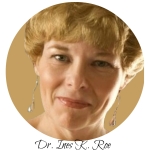
I am always on the lookout for research on midlife and the “crisis” they say is looming shortly thereafter. You might jokingly recognize what I’m referring to if you try to buy a birthday card for someone who is turning more than 40 years old.
Over the hill, they read in big black letters.
So many of the stereotypes imply a breakdown and dissatisfaction with life. The assumption is that as people get to middle age, they have a meltdown inspired by the looming life changes just around the corner.
Midlife, by the way, is being defined as later and later. In the 1990’s most people believed “midlife” to be between 44 to 59 years old, and now those same people define it as between 46-62.
I’m also more and more likely to become annoyed with some of the language that’s used to define a midlife existence: Empty nesters, middle-aged, cougars, etc. Why does it always have negative connotations attached instead of positive “next stage” indications?
I recently ran across an interesting article in Scientific American Mind about debunking the Midlife Myths. The article pointed out that people in that age range do face significant stressors, such as retirement and other losses, but that a “breakdown” occurs much less often than many people think.
The article went on to express that most people view it as an opportunity to welcome a “second act.” In fact, they were freed to finally pursue their own dreams, especially if they were financially secure.
Let’s not downplay this very serious change, though. Midlife does present challenges to people. This period is often a time of life that is marked with significant life events.
Loss may be one hallmark of the midlife changes – retirement or loss of job/career/work life, loss of parents, loss of motherhood (i.e. children leaving home), etc.
The authors of the article explained that happiness throughout life often takes a “U” shape curve with the low point in the mid 40’s, and that maybe that is why the stereotype of the midlife crisis emerged. What better way to make yourself happy than a girlfriend or boyfriend who’s half your age, or a brand new fast shiny car?
Despite this U shape, when older people (70 and up) were asked what age they would most like to be again, the majority wanted to be in their 40’s. So, if life was really so sad at this age, why go back to that decade?
At face value that would seem like a contradiction. If midlife is the low point of life happiness according to researchers why would it be the time most people would like to relive? Maybe it is simply that during this period people recognize that there is still the opportunity to take stock, and revisit unrealized dreams.
Think about it: at what is now identified as “midage”you are still young enough, and, yet, mature enough to do anything…why not finally live your dream?
Get started by asking yourself these questions:
- Midlife quest for identity – who am I?
- Value clarification – what matters to me?
- Clarity about your life direction – where do I want to go?
- Unmet dreams – what are the possibilities?
And if you find yourself desiring the next step, seeking something you can’t put your finger on, or just hoping that there’s more out there than the mysterious elusive dream…let’s chat. I’d love to help you find your way into a blissful future.
Find your balance with our FREE 7-day guided meditations:
 Dr. Ines K. Roe has been helping women in transition rediscover themselves for over 20 years. If you’ve been feeling unfulfilled, are frustrated with your sense of accomplishment in midlife, or simply need guidance on your path to holistic well being, join her ecourses.
Dr. Ines K. Roe has been helping women in transition rediscover themselves for over 20 years. If you’ve been feeling unfulfilled, are frustrated with your sense of accomplishment in midlife, or simply need guidance on your path to holistic well being, join her ecourses.

[…] already heard my thoughts on the so-called midlife crisis, but I haven’t yet taken a deep-dive into discussing the dreaded word “aging.” […]